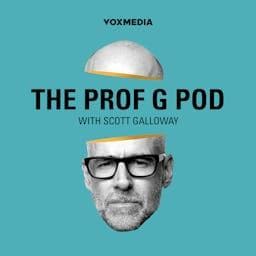In this podcast, Larry Gross, a long-time industry expert and 2024 Silver Kingpin Award winner, reflects on a career that began before the deregulation of the transportation industry in 1980. Gross spent over two decades developing Road Railer technology, which featured reinforced 53-foot trailers that could act as rail cars through the attachment of detachable rail running gear. Although this innovation was eventually supplanted by the 53-foot domestic container on double-stack rail, Gross notes that "ignorance is the mother of innovation," as he likely would never have started the project had he known the true nature of the obstacles ahead.
Gross describes the current relationship between freight modes by stating that truckload is the "dog" and intermodal is the "tail," meaning the health and movements of the trucking market inevitably govern the domestic intermodal sector. Currently, the industry is split between international ISO containers and domestic 53-foot containers, with approximately 60% to 65% of all U.S. intermodal volume tied directly to international trade. While intermodal service is currently as good as it has ever been, its market share has remained stuck in the 6% range for domestic moves. This stagnation is partly due to Precision Scheduled Railroading (PSR), a strategy focused on reducing costs and operating massive trains, which often restricts intermodal service to only the largest, longest-haul markets.
Looking toward the future, Gross is excited by autonomous, battery-powered rail cars that move in platoons. This technology could allow intermodal to reach shorter-haul markets by removing the need to accumulate giant trainloads. However, he warns that autonomous trucking poses a significant threat to rail; by removing the driver, trucking could offer team-driver service levels at costs lower than a single driver, making it even harder for intermodal to compete. Ultimately, Gross views intermodal as a "good enough story," where the service must be reliable and roughly 15% cheaper than trucking to remain an attractive alternative for shippers.
Top Three Takeaways
1. The Two-Thirds Rule of Competitiveness: As a practical rule of thumb, intermodal can typically compete with trucking if the rail portion of the trip represents at least two-thirds of the total door-to-door miles. This ratio determines the "drainage area" around a terminal where rail remains economically viable despite drayage costs.
2. Diversified Port Strategies: Importers have shifted from a West Coast-centric model to a "four-corner" or "five-corner" strategy, diversifying volume across the Pacific Northwest, Southern California, the Gulf, the Southeast, and the Northeast. This shift has hurt intermodal because the shorter lengths of haul from East Coast ports naturally favor trucking.
3. The Tension Between PSR and Growth: While Precision Scheduled Railroading has significantly improved railroad profitability and operating ratios, its focus on cost-cutting and large-scale operations acts as an impediment to gaining market share. By restricting service to major long-haul corridors, the railroads may be hitting a ceiling for potential growth.
Larry Gross suggests that major shifts in the supply chain are like tectonic plate movements: they are incredibly slow and inexorable, meaning you cannot fight them but must simply learn to accommodate them.
Hosted by Simplecast, an AdsWizz company. See https://pcm.adswizz.com
for information about our collection and use of personal data for
advertising.



























